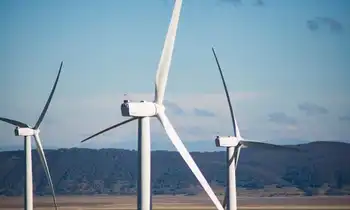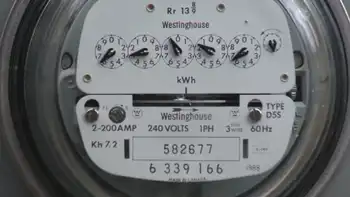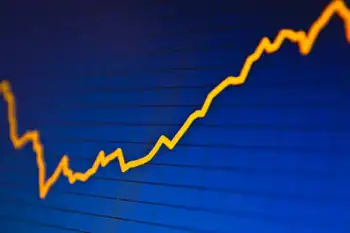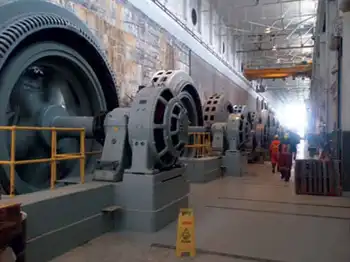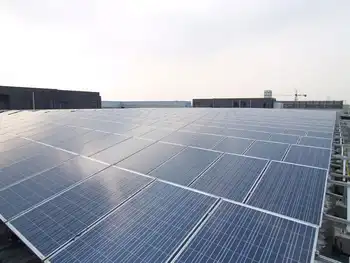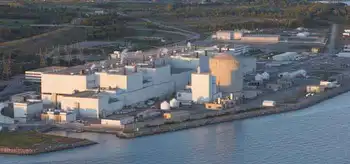Ontario Darlington SMR Expansion advances four GE Hitachi BWRX-300 reactors with OPG, adding 1,200 MW of baseload nuclear power to support electrification, grid reliability, and clean energy growth across Ontario and Saskatchewan.
Key Points
Plan to build four BWRX-300 SMRs at Darlington, delivering 1,200 MW of clean, reliable baseload power under OPG.
✅ Four GE Hitachi BWRX-300 units, 1,200 MW total
✅ Shared infrastructure cuts costs and timelines
✅ Supports electrification, grid reliability, net zero
The day after Ontario announced it would be building an additional 4,800 megawatts of nuclear reactors at Bruce Nuclear Generating Station, the province announced it would be dramatically expanding its planned rollout of small modular reactors at its Darlington Nuclear Generating Station, and confirmed plans to refurbish Pickering B as part of its broader strategy.
Ontario Power Generation OPG was always going to be the first to build the GE-Hitachi BWRX-300 small modular reactor SMR, with the U.S.’s Tennessee Valley Authority among others like SaskPower and several European nations following suit. But the OPG was originally going to build just one. On July 7, OPG and the Province of Ontario announced they would be bumping that up to four units of the BWRX-300.
The Ontario government is working with Ontario Power Generation (OPG) to commence planning and licensing for three additional small modular reactors (SMRs), for a total of four SMRs at the Darlington nuclear site. Once deployed, these four units would produce a total 1,200 megawatts (MW) of electricity, equivalent to powering 1.2 million homes, helping to meet increasing demand from electrification and fuel the province’s strong economic growth, the Ontario Ministry of Energy said in a release.
“Our government’s open for business approach has led to unprecedented investments across the province — from electric vehicles and battery manufacturing to critical minerals to green steel,” said Todd Smith, Minister of Energy. “Expanding Ontario’s world-leading SMR program will ensure we have the reliable, affordable and clean electricity we need to power the next major international investment, the new homes we are building and industries as they grow and electrify.”
For the first time since 2005, Ontario’s electricity demand is rising. While the government has implemented its plan to meet rising electricity demand this decade, the experts at Ontario’s Independent Electricity System Operator have recommended the province advance new nuclear generation and pursue life-extension at Pickering NGS to provide reliable, baseload power to meet increasing electricity needs in the 2030s and beyond.
Subject to Ontario Government and Canadian Nuclear Safety Commission (CNSC) regulatory approvals on construction, the additional SMRs could come online between 2034 and 2036. That is the same timeframe that SaskPower is looking at for its first, and possibly second, units.
The initial unit is expected to go online in 2028 following Ontario’s first SMR groundbreaking at Darlington.
The Darlington site, which already hosts four reactors, was originally considered for an expansion of “large nuclear,” which is why OPG was already well on its way for site approvals of additional nuclear power generation. The plan changed to one, singular, SMR. Now that has been updated to four.
The announcement has significant impact on Saskatchewan, and its plans to build four of its own SMRs. The timing would allow Ontario Power Generation to apply learnings from the construction of the first unit to deliver cost savings on subsequent units. This is also the strategy SaskPower is following – allow Ontario to build the first, then learn from that experience.
Building multiple units will also allow common infrastructure such as cooling water intake, transmission connection and control room to be utilized by all four units instead of just one, reducing costs even further, the Ministry said.
“A fleet of SMRs at the Darlington New Nuclear Site is key to meeting growing electricity demands and net zero goals,” said Ken Hartwick, OPG President and CEO. “OPG has proven its large nuclear project expertise through the on-time, on budget Darlington Refurbishment project. By taking a similar approach to building a fleet of SMRs, we will deliver cost and schedule savings, and power 1.2 million homes from this site by the mid-2030s.”
The Darlington SMR project is situated on the traditional and treaty territories of the seven Williams Treaties First Nations and is also located within the traditional territory of the Huron Wendat peoples. OPG is actively engaging and consulting with potentially impacted Indigenous communities, including exploring economic opportunities in the Darlington SMR project such as commercial participation and employment.
The Ministry noted, “Ontario’s robust nuclear supply chain is uniquely positioned to support SMR development and deployment in Ontario, Canada and globally. Building additional SMRs at Darlington would provide more opportunities for Ontario companies and broader economic benefits as suppliers of nuclear equipment, components, and services to make further investments to expand their operation to serve the growing SMR market both domestically and abroad.”
Supporting new SMR development and investing in nuclear power is part of the Ontario government’s larger plan, aligned with a Canadian interprovincial nuclear initiative that brings provinces together, to prepare for electricity demand in the 2030s and 2040s that will build on Ontario’s clean electricity advantage and ensure the province has the power to maintain it’s position as leader in job creation and a magnet for the industries of the future, the Ministry said.
In February, World Nuclear News (WNN) reported that Poland was considering up to 79 small modular reactors of the same design as OPG and SaskPower. And on June 5, it reported, “Canada’s Ontario Power Generation will provide operator services to Poland’s Orlen Synthos Green Energy under a letter of intent signed between the partners, extending their existing cooperation on the deployment of small modular reactors.”
WNN added, “The letter of intent is aimed at concluding future agreements under which OPG and its subsidiaries could provide operator services for SMR reactors to OSGE in connection with the deployment of SMRs in Poland and other European countries. The partnership would include a number of SMR-related activities including: development and deployment; operations and maintenance; operator training; commissioning; and regulatory support.”
Related News






